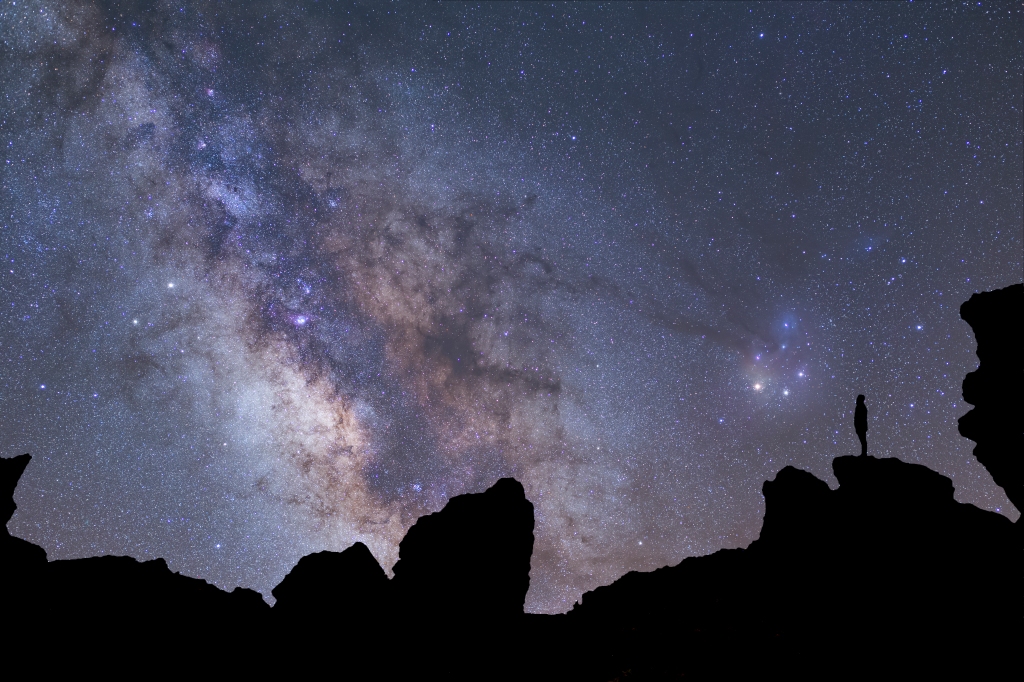
By Antonino Puglisi
Science is increasingly able to show the relational character of Nature. Our Wonderverse blog has been a fascinating way to showcase how the universe we live in is more than just a collection of separate objects and everything shines as in a cloud of interconnected bursts of energy.
I have recently been involved in the preparation of a conference on ecology,[1] making me realise how that sense of interrelatedness permeates much of the environmental sciences. In particular, I was happy to discover how religions are responding to the quest for the preservation of our planet[2]. From the whirling dervishes in Sufism, who through their dance aim at connecting the human with the cosmic energy of the universe, to the many accounts in Christian traditions of saints talking with animals, it seems to me that modern science is demonstrating what the wisdom of religions has long taught: everything is connected!
Secular institutions too are breaking down overly rigid separations between humans and the other animals. On 28th January 2015, the French Parliament legally recognized animals as “living beings endowed with sensitivity”[3], marking their transfer from the category of things to that of beings.
One of my cultural heroes of all times is perhaps the Russian polymath and theologian Pavel Florensky (1882-1937). In a letter from the gulag to his wife and children at home he describes his meeting with a viola flower, recognizing in her a true partner to his soul:
“Of course, I knew perfectly well that the viola and I had nothing in common, just as I knew that the viola had no eyes […]. I remember well the sudden and anything but banal sensation of glances that meet, of eyes that stare at each other: something flashes, strong, and then ceases; after all, such a direct observation of the face of Nature could not last long. Although fleeting, that feeling gave the absolute certainty of the authenticity of the encounter: we had seen each other and we understood each other; and not only did I understand her, but even more she understood me. And I knew that she knew me and saw me even better than I did, and above all I knew that she loved me”.[4]
What at first sight might look like an exagerated sensitivity contains in my opinion a genuine, profound intuition about our relationship as human beings with the rest of nature.
Humans have lived and evolved in a natural environment for thousands of years alongside our fellow animals, plants and the rest of the inanimate world with whom we share this unique planet. The recent massive urbanization of the last century has turned our cities into vast human monocultures in which there is now only space for the symbolic presence of a few trees, dogs, cats and some rats…
That excessive divide has not only desensitized us to nature but, I am convinced, is also the source of much of the sense of restlessness, unhappiness and ultimately existential loneliness of being in the world.
In a moment of special illumination, Chiara Lubich (1920-2008) perceived that “on earth everything is in a relationship of love with everything else: each thing with each thing. But we need to be Love in order to find the golden thread of love between beings”[5]. Such a vision of love connecting beings, I believe, contains the key to recuperating the sense of interrelatedness that can help us motivate a much–needed ecological conversion and perhaps represents the remedy to our loneliness.
References
[2] A Dialogue on Laudato Si’ (blogpost) https://wine.water.blog/2020/10/28/a-dialogue-on-laudato-si/
[3] By Law n°2015-177 of 16 February 2015
[4] Florenskij, P. A., Ai miei figli: memorie di giorni passati (Translation is mine).
[5] Chiara Lubich, 1997, Scritti spirituali /1, Città Nuova, Rome (Translation is mine)
Antonino Puglisi is a research chemist at the University of Natural Resources and Life Sciences (BOKU) in Vienna – Austria and Research Associate at the Faculty of Theology and Religion at the University of Pretoria in South Africa.
Grazie Nino di questo post così bello ed incoraggiante! Credo anch’io che questa visione, e questo rapporto con gli esseri della Natura possa essere un vero rimedio alla solitudine.
Grazie di ricordarmelo!
LikeLike
This is so concise and powerful, thank you!
LikeLike